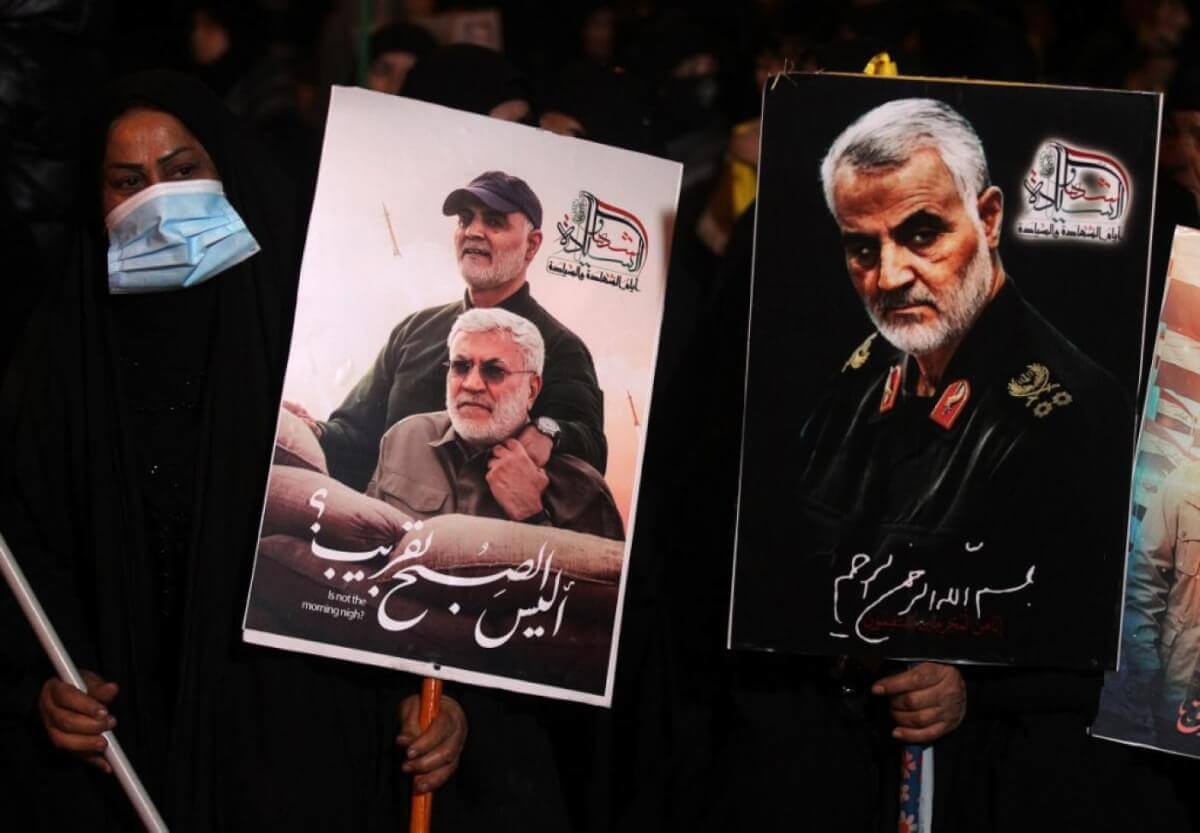In Iran and Iraq, thousands of rallies and rallies are held dedicated to the anniversary of the death of the general and commander of the Al-Quds forces of the Islamic Revolutionary Guards Corps (IRGC) Qasem Suleimani. According to local media outlets, they are especially active in Baghdad and Tehran. The police in both capitals were reinforced in advance. There have been no outbreaks of aggression, except for words about revenge, but the United States fears that military provocations and even missile strikes are possible.
Memory actions and processions, as expected, began at dawn. By evening, hundreds of thousands of local residents were already on the streets of Iraqi and Iranian cities, thousands of flags and photographic posters of General Qassem Suleimani calling for immediate revenge for the martyrdom. Some foreign observers and media representatives, such as the Lebanese news agency Al-Masdar News, report that by lunchtime on January 3, the number of people in Tehran had long passed over a million.
Iraqi and Iranian supporters of General Soleimani have spilled a lot of anger on the Internet. So, in social networks, they call to finish what was not possible last year. They are reminiscent of the missile attack on the US military contingent in Iraq by the Islamic Revolutionary Guard Corps (IRGC).
The streets of Iraqi cities and capital Baghdad are also full of protesters. However, if in Tehran, January 3, with the full support of the authorities, was turned into a national day of mourning, in Iraq the country’s leadership fears that the situation will get out of control. Heavy equipment, a policeman, and even army special forces are pulled up to the center of Baghdad.
However, the leadership of the army and the police corps express fears that in the event of provocations it will be almost impossible to cope with the crowd. For example, in Baghdad, Police Chief Major General Majid al-Mousawi warns that the so-called Green or Diplomatic Zone of the Iraqi capital could become a target for Shiite fanatics. Some of the roads have already been blocked, armored cars have been barred.
Together with the Iraqi leadership, the American occupation authorities are also afraid of revenge for Soleimani. Recall that there are several US military bases in Iraq and in the Persian Gulf region in general. This means they are potential targets for possible retaliation strikes. And it turned out that the fears were not in vain. US intelligence has established that Iran allegedly brought its naval forces on alert in the Persian Gulf region for the next 48 hours.
Moreover, CNN and Fox News report that the Pentagon has information that Iran is allegedly deploying low-yield ballistic missiles to Iraq.
According to North American journalists, the Pentagon has prepared a number of preventive measures since January 2. Namely: from the territory of Kuwait, reconnaissance drones MQ-9 Reaper were lifted into the air, and the US aviation went into full alert mode.
As an argument for Iran’s possible aggression, foreign news agencies cite an animated video with footage of a massive missile strike posted on the Web the day before.
The Israeli “Tsakhal” is also transferred to a state of increased combat capability. Vacations for part of the contingent have been canceled, armored vehicles have been moved to the borders, and dozens of fighters have been deployed at the airfields.
At the same time, Iran has no doubts: the United States itself is trying to find a pretext for unleashing a war.
“The United States sent high-tech weapons to the Middle East region along with the military, and this can be considered a provocation,” said Eshag al-Habib, the temporary charge d’affaires of the Iranian Republic of Iran under the UN.
As a result, many experts consider the next few days a slip on the edge of peace and war in the Middle East. “Only a small spark is enough to flare up first in Iraq, then spread to the Persian Gulf, and then – and the entire Middle East region will be engulfed in a bloody war,” they argue with an acute desire to be mistaken.
Recall the commander of the Al-Quds forces of the Iranian Islamic Revolutionary Guard Corps Qasem Soleimani was killed by the American special services on January 3, 2020, as a result of a rocket attack from a drone. In Tehran, they promised to avenge the general Qassem Soleimani ‘s death .












